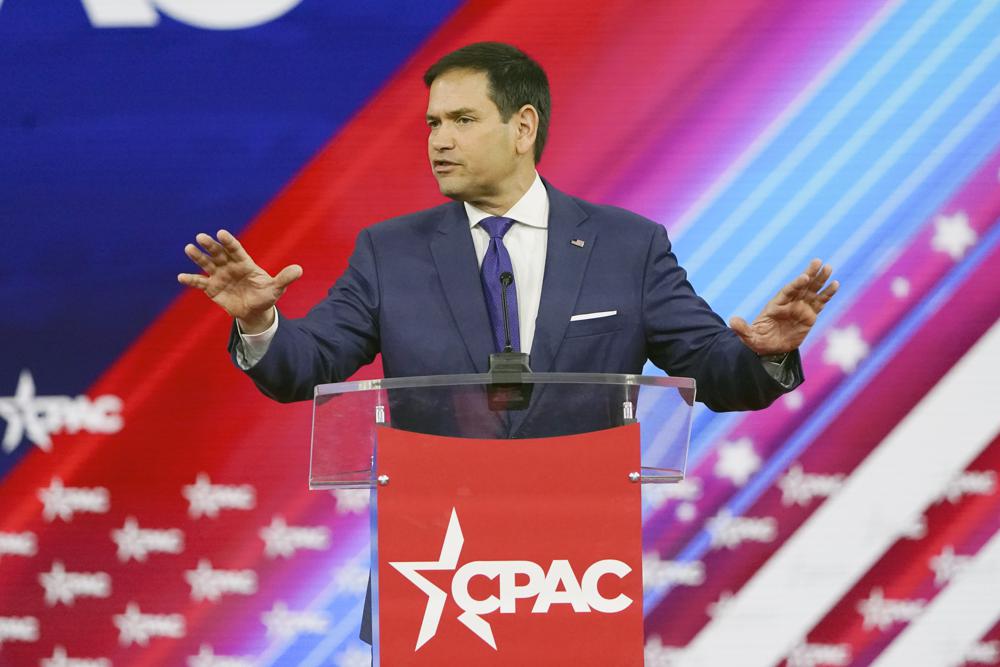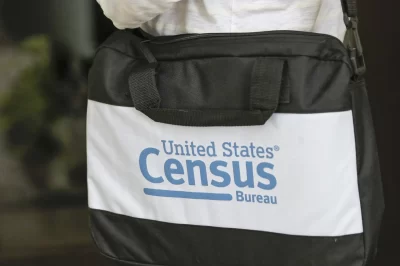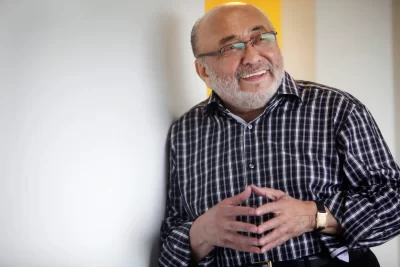
ORLANDO, Fla.— The Republican Party’s leading conservatives have spent several days in Florida focused on the issues they believe will help the GOP retake control of Congress this fall — and perhaps the White House soon thereafter.
Largely unmentioned? Former President Donald Trump and his chief grievances.
Lies about election fraud, the focus of last year’s Conservative Political Action Conference, have been an afterthought for the opening days of this year’s four-day affair. Some high-profile speakers distanced themselves from Trump’s approving rhetoric toward Russian President Vladimir Putin, who launched an invasion of Ukraine shortly before the gathering. Some didn’t mention Trump’s name.
Instead, those most likely to seek the Republican Party’s presidential nomination in 2024 rallied in favor of more parental control of schools, railed against any mention of systemic racism and rejected pandemic-related mandates.
“There are people that perhaps have never voted the same way any of you have in a presidential race and they’re really angry,” Florida Sen. Marco Rubio told conservative activists Friday. “And that’s why I believe that for all the negative we’ve heard, the pendulum is swinging.”
Democrats have reason to be concerned if Republicans can stay focused.
The party is clinging to paper-thin majorities in the House and Senate, and voter sentiment has swung in an ominous direction for Democrats since President Joe Biden took office. In an AP-NORC poll conducted Feb. 18-21, 70% of Americans said the country was headed in the wrong direction. As few as 44% said the same in April 2021.
And as public opinion shifts, the GOP is drawing on the same playbook that Virginia’s Republican Gov. Glenn Youngkin used last fall to win in a state Trump lost by 10 points a year earlier. Youngkin avoided Trump and his biggest grievances, including the false notion that the 2020 presidential election was plagued by mass voter fraud.
It was much the same this week in Florida.
Missouri Sen. Josh Hawley, who tried to block the certification of Biden’s electoral victory after the Jan. 6 Capitol attack, sidestepped a question about whether he would challenge Trump in a 2024 prospective matchup.
“I’ve said I’m not planning to run for president,” Hawley told reporters before his speech, which focused on Biden’s foreign policy challenges and the teaching of systemic racism.
The senator then distanced himself from the Republicans, including Trump, who have offered soft praise for Putin. “That’s a mistake. Putin is our enemy. Let’s be clear about that,” Hawley said.
Trump told supporters at his Florida estate this week that Putin was “pretty smart” for seizing Ukraine.
Florida Gov. Ron DeSantis, who has also refused to rule out a 2024 presidential bid should Trump run, did not mention the former president in his 20-minute address. Instead, he railed against what he called “Fauci-ism,” a reference to leading government health official Anthony Fauci’s cautious approach to the pandemic.
After touting his own anti-mask and anti-vaccine policies as governor, DeSantis trained his harshest criticism at the Democratic president. He said Biden “hates” Florida.
”He’s had the worst first year of any president since the 1800s,” DeSantis said.
Former Secretary of State Mike Pompeo spoke about his work in the Trump administration, but he did not repeat his own flattering comments about Putin from earlier in the week, when he called the Russian leader “very capable” and said he has “enormous respect for him.”
Pompeo, who reminded attendees of his potential 2024 ambitions by citing a recent trip to Iowa, said those focused on systemic racism, not the nation’s foreign adversaries, represent the greatest threat to America’s future.
“There is no threat greater to the United States than that which emanates inside our republic, emanates inside our school system, if we do not teach our children, the next generation, that we are not a racist nation,” Pompeo said.






